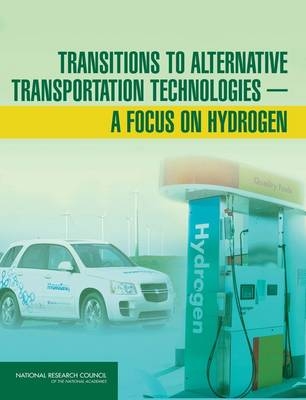
Transitions to Alternative Transportation Technologies
National Academies Press (Verlag)
978-0-309-12100-2 (ISBN)
- Keine Verlagsinformationen verfügbar
- Artikel merken
Hydrogen fuel cell vehicles (HFCVs) could alleviate the nation's dependence on oil and reduce U.S. emissions of carbon dioxide, the major greenhouse gas. Industry-and government-sponsored research programs have made very impressive technical progress over the past several years, and several companies are currently introducing pre-commercial vehicles and hydrogen fueling stations in limited markets.
However, to achieve wide hydrogen vehicle penetration, further technological advances are required for commercial viability, and vehicle manufacturer and hydrogen supplier activities must be coordinated. In particular, costs must be reduced, new automotive manufacturing technologies commercialized, and adequate supplies of hydrogen produced and made available to motorists. These efforts will require considerable resources, especially federal and private sector funding.
This book estimates the resources that will be needed to bring HFCVs to the point of competitive self-sustainability in the marketplace. It also estimates the impact on oil consumption and carbon dioxide emissions as HFCVs become a large fraction of the light-duty vehicle fleet.
Table of Contents
Front Matter
Abstract
Summary
1 Introduction
2 Toward a Substantial and Durable Commitment: The Context of the
Study
3 Hydrogen Technology
4 Alternative Technologies
5 Role of the Stationary Electric Power Sector in a Hydrogen Fuel
Cell Vehicle Scenario
6 Hydrogen and Alternative Technologies for Reduction of U.S. Oil
Use and CO2 Emissions
7 A Budget Roadmap
8 Actions to Promote Hydrogen Vehicles
9 Advantages and Disadvantages of a Transition to Hydrogen Vehicles
in Accordance with the Time Lines Established by the Budget Roadmap
Appendix A Committee Biographical Information
Appendix B Presentations at Committee Meetings
Appendix C Modeling a Hydrogen Transition
Appendix D Acronyms and Abbreviations
Committee on Assessment of Resource Needs for Fuel Cell and Hydrogen Technologies, National Research Council
1 Front Matter; 2 Abstract; 3 Summary; 4 1 Introduction; 5 2 Toward a Substantial and Durable Commitment: The Context of the Study; 6 3 Hydrogen Technology; 7 4 Alternative Technologies; 8 5 Role of the Stationary Electric Power Sector in a Hydrogen Fuel Cell Vehicle Scenario; 9 6 Hydrogen and Alternative Technologies for Reduction of U.S. Oil Use and CO2 Emissions; 10 7 A Budget Roadmap; 11 8 Actions to Promote Hydrogen Vehicles; 12 9 Advantages and Disadvantages of a Transition to Hydrogen Vehicles in Accordance with the Time Lines Established by the Budget Roadmap; 13 Appendix A Committee Biographical Information; 14 Appendix B Presentations at Committee Meetings; 15 Appendix C Modeling a Hydrogen Transition; 16 Appendix D Acronyms and Abbreviations
| Erscheint lt. Verlag | 17.12.2008 |
|---|---|
| Verlagsort | Washington |
| Sprache | englisch |
| Maße | 216 x 279 mm |
| Themenwelt | Naturwissenschaften ► Biologie ► Ökologie / Naturschutz |
| Technik ► Elektrotechnik / Energietechnik | |
| Technik ► Fahrzeugbau / Schiffbau | |
| ISBN-10 | 0-309-12100-0 / 0309121000 |
| ISBN-13 | 978-0-309-12100-2 / 9780309121002 |
| Zustand | Neuware |
| Haben Sie eine Frage zum Produkt? |
aus dem Bereich


